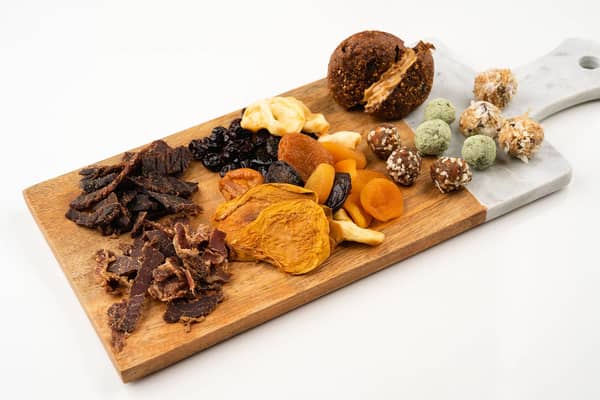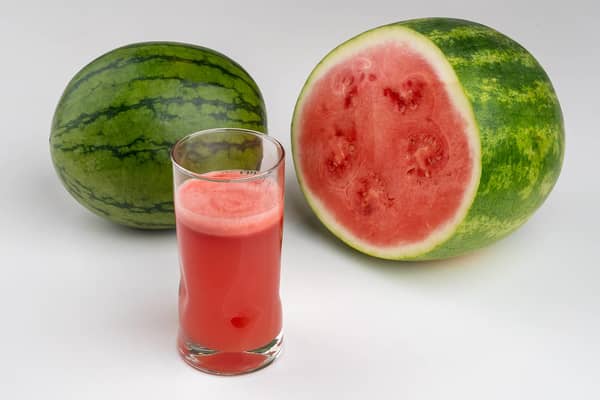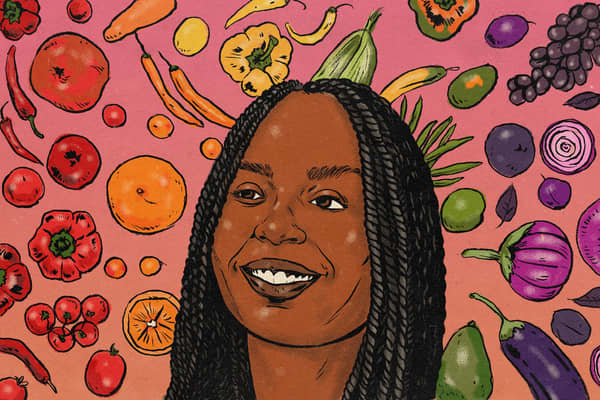4 Reasons Why You Should Eat More Squash
Nutrition
A registered dietitian discusses the facts about the beloved vegetable.

Squash may be one of the most versatile vegetables out there. There are so many different varieties to enjoy (think: acorn, butternut, delicata, courgette and, yes, even pumpkin) and all are a rich source of vitamins, minerals, complex carbohydrates and fibre. There are many benefits of squash that are worth reaping.
A few standout benefits include those for skin health, blood sugar balance, immune-system support and prevention of chronic inflammation. Most squash has a yellow-orange-coloured flesh, due to a class of pigments called carotenoids. One of the most studied carotenoids is beta-carotene (a precursor to vitamin A), which has been investigated for its myriad positive effects on the body.
Thanks to the presence of beta-carotene and an assortment of vitamins and minerals, there are several benefits of squash. Below, you'll see reasons why adding a variety of the hearty vegetable to your plate more regularly can have big payoffs.
4 Benefits of Squash
1.Promotes Healthy Skin
Research indicates that carotenoids are among the strongest antioxidants. Beta-carotene in squash, for example, supports skin health by fighting damage done to the skin by free radicals. For context, free radicals are a type of harmful molecule that can build up in cells and cause damage to things like DNA and proteins. Beta-carotene also supports the growth and turnover of new skin cells. A review paper published in a 2011 issue of the journal Molecules, described that high carotenoid levels in the skin helped individuals appear younger, although that metric is subjective.
This information matched the theory, also discussed in the paper, that higher levels of antioxidants in the skin help protect against ageing. But, before you go and gobble up numerous plates of squash in the hopes of promoting youthful skin, it's important to note that carotenoids are fat-soluble. This means that in order to be absorbed in the body, they need to be in the presence of fat.
Instead of noshing on plain steamed squash, for example, make sure you drizzle some healthy fats, such as olive oil, on top to ensure optimal absorption of those skin-nourishing compounds.
2.Aids in Blood Sugar Regulation
Winter squash such as butternut, kabocha, delicata and acorn squash are all forms of healthy, starchy vegetables. One cup of butternut squash contains almost double the number of grams of carbohydrates as one cup of broccoli, for example. Although squash is quite high in carbohydrates, it boasts quite a bit of fibre making it a complex carbohydrate, which supports blood sugar regulation.
The fibre in the squash prevents blood sugar from rising and falling rapidly, meaning fewer dips in mood or energy levels. Squash is an excellent carbohydrate choice for those looking to manage their blood sugar. In addition, cooked winter squash offers a great source of carbohydrates for anyone who exercises regularly (at least 150 minutes of moderate physical activity each week) to utilise before a long workout or training session.
3.Supports a Healthy Immune System
Your skin health and blood-sugar levels are not the only things that see a benefit when you eat squash. The vitamins and minerals found in squash also support a healthy immune system.
Vitamin C and the mineral magnesium are both critical for the immune system—and both are present in squash. One cup of butternut squash contains roughly 25 percent of the recommended dietary allowance, or RDA, of vitamin C for adult women and men (which is 75 and 90 milligrams, respectively).
And magnesium is a mineral that plays many supporting roles in the immune system. In fact, magnesium deficiency has been linked to chronic, low-grade inflammation. Although not a super-rich source of magnesium (one cup of butternut squash contains just a little more than 10 percent of the RDA for adult men and women), approx. 28 grams of pumpkin seeds provides roughly 20–25 percent of the RDA for magnesium for adult men and women.
4.Combats Inflammation
A review article in a 2021 issue of the journal Biomedicines examined the anti-inflammatory effects of diet on healthy ageing. But first, it's important to note that inflammation is a necessary function in the body. It occurs when there is exposure to an allergen or toxin, when an injury happens or during an infection to help kick-start the healing process. However, when inflammation becomes chronic—meaning it is triggered for a prolonged period of time—it can stimulate the development of diseases, such as cardiovascular disease, autoimmune disease, neurological disease and cancer.
As simple as it may sound, one major way to prevent or combat chronic inflammation is to consume a diet that's rich in fruits, vegetables, unrefined grains, unsaturated fats and lean proteins—research supports this suggestion above all other dietary fads.
(Related: Dietitian-approved, High-protein Snacks To Eat After a Workout)
Squash's nutrient profile, in particular, makes it an excellent player in the fight against chronic inflammation. Swapping refined carbohydrates—such as white pasta or bread—for baked acorn squash at dinner, or ditching sugary cereals at breakfast for a homemade pumpkin chia pudding can provide all of the above benefits. Routinely making swaps like these can help prevent chronic diseases linked to inflammation.
What Are Some Ways You Can Enjoy Squash?
It's all about personal taste preference, accessibility and comfort in the kitchen. Canned pumpkin—the only ingredient should be pumpkin—is an easy and affordable way to add squash to your diet. Try adding it to oatmeal and smoothies or mix it into plain Greek yoghurt to make your own pumpkin-flavoured breakfast.
Peeling and chopping butternut squash can be laborious but this preparation makes it easy to roast. Season with salt and pepper and enjoy it roasted on its own or toss it on top of a salad or blend into a soup. Frozen squash is just as nutritious and can take some of the prep work out of cooking too.
Pro tip: try your hand at stuffed delicata squash. Slice the squash down the centre, scoop out the seeds and roast it with your favourite filling (minced meat, tofu, chickpeas or lentils, for example). Remember, in order to get many of the benefits of squash (carotenoids and vitamin A), you need to consume your squash with a fat, such as olive oil, nuts, seeds or full-fat dairy.
Words by Sydney Greene, MS, RDN.





